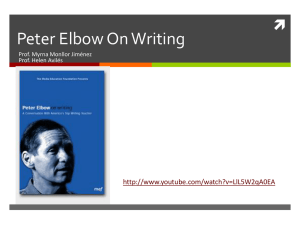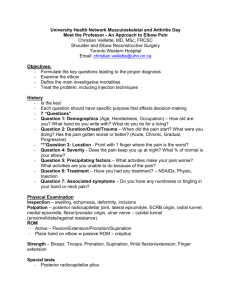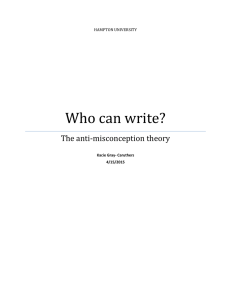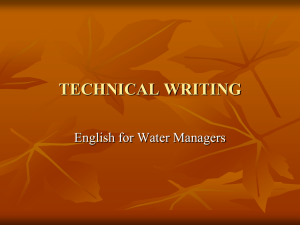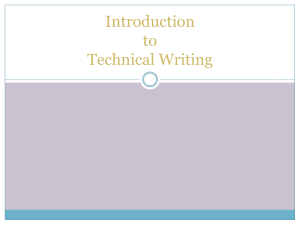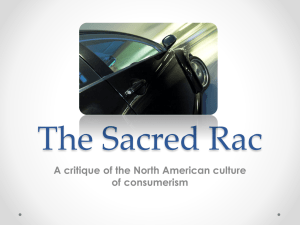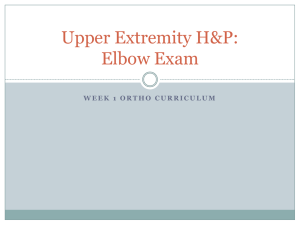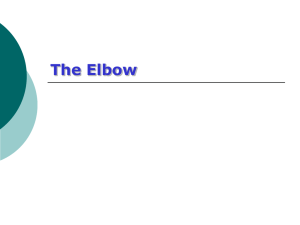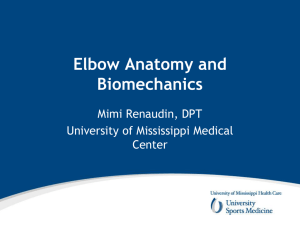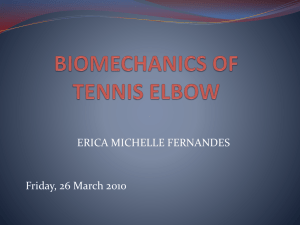PowerPoint Review
advertisement
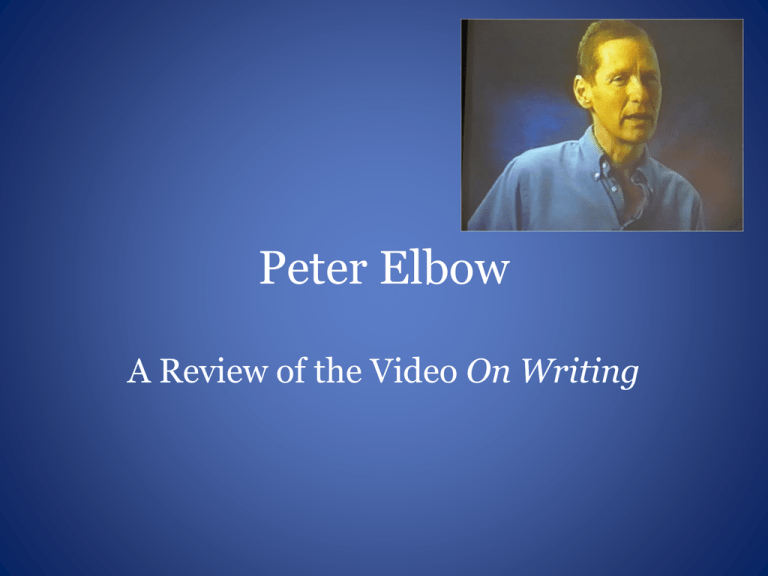
Peter Elbow A Review of the Video On Writing Failure and Learning from It • Although he had been an diligent student in college and had earned good grades, Peter Elbow discovered in graduate school that he really did not know how to write. • Had to leave graduate school [“before they kicked me out”] after a semester and a half. • Began keeping notes on when he ran into trouble writing and what he did to got him self out of trouble. Stuffed those notes into a folder From that folder of notes came • Writing Without Teachers: Freewriting, according to Elbow, is a terrific way to get things onto the page that you never knew you had in you: • "Never stop ... to wonder what word or thought to use, or to think about what you are doing." First Misconception of Writing • The belief that one had to get a clear idea in one’s head before starting to write. • Writing teachers often say to “start with an outline.” But this may give students the idea that they have to have their whole written assignment laid out before they put pen to paper. • Instead step one should be “Make a MESS”—plunge in “Making A Mess” • Two mental muscles are used to write – The Creative-Generative Muscle which opens the doors. – The Clenching critical Muscle—the editor and organizer • Both are needed for handing in work to an audience of authority. • But before one can edit one must have stuff to actually look at. Free Writing • Private—unfair to ask someone to read from a free-writing experiment. • “Voyage into the unknown.” • Take fifteen minutes to write anything. • Do not stop, do not edit, do not correct. • Keep writing even beyond the point when you have nothing to say, because it is at this point that the good stuff finally begins to surface. • No one falls in love with the experience of writing until he or she has experienced a moment of surprise! Doonbury back in the sixties when the gang was actually still in college (Yale). Thinking of Audience Nothing is more important to a writer than readers. Types of Readers: Who Reads Our Stuff? • Authority Readers – People who’s opinion of our work will affect our status: teachers, editors of journals, clients. Those with authority. Elbow says they “are here to stay.” • Peer Readers: – Regular human beings. Someone on the same level as the writer. “We need peers.” • Ally Readers: – Readers who are on the writer’s side. They know that even if the writer puts out things that may not make sense, the writer is bright and can make sense. The Range of Audiences • Personal Writing— – journal or diary writing: no audience. • Shared Writing— • No response Non evaluative; this is a gift. Just say “thank you.” • Most writing done professionally works out this way although modern technology is creating a greater potential for feedback. • Writing for a Response but not evaluation— • What do you hear me saying here?” (ally readers) • “Do you understand what I was trying to say?” • Writing for Evaluation— • An audience who has authority over you: a teacher, a boss, an administrator. • Nothing wrong with this except when this is the only kind of audience a writer experiences. Moving from Safety Into Risk Unless you take risks, you will never enjoy writing; and if you never enjoy writing, no one will ever risk reading what you write. REVISING • A Different muscle than the creative one— this is the “clinching” muscle. • Fill up pages of stuff—BUT--Throw away all but the best. After a lot of creation there is the luxury to remove what is unneeded. • The revising leads to new thoughts so even while clinching writers may also create. The Struggle Against the Sense of Helplessness • For many new writers the feeling of helplessness—the loss of power—is one of the great sources which strangle the process. • Elbow claims that when he connects his passion to his words, he uses language bravely and this allows him to speak with power. • “Talking Turkey” Creating a Voice • This issue comes up not so much in informal writing but in formal or academic writing. • Specific fields (like history or literature) require constraints—no contractions, no use of the first person but instead the omnipotent impartial speaker. • Elbow faces the question of how does the writer use his or her own voice even within the parameters of academic writing? • Do not, he says, try to take on the timeless impersonal voice when first beginning to write. • Instead write the essay exactly the way you want to write it, that is informally with the I’s and yous with contractions like can’t and haven’t. • Then go back and change the tone. • The author may have to write the work twice, but Elbow notes this is still “quicker and easier.” What is the effect of Spelling and Grammar Problems for the Reader?—Distractions • Elbow notes that “People tune you out.” • Thus, correcting grammar and spelling is important, but it is the last thing you do—the final clinching muscle. • If it is not your strongest point, get hellp.
